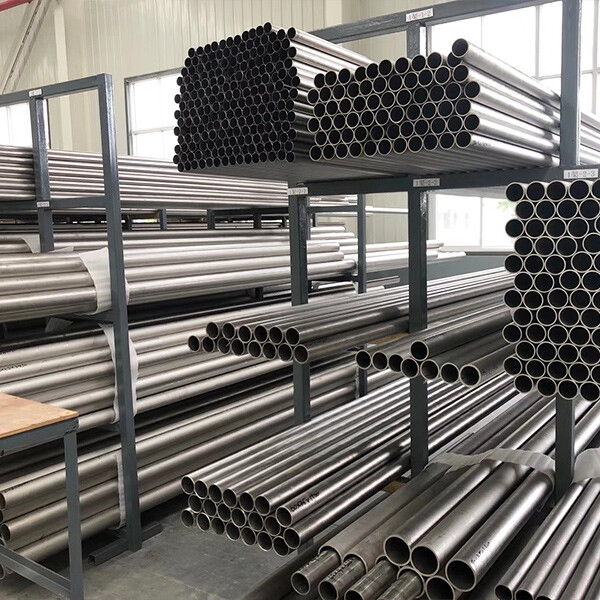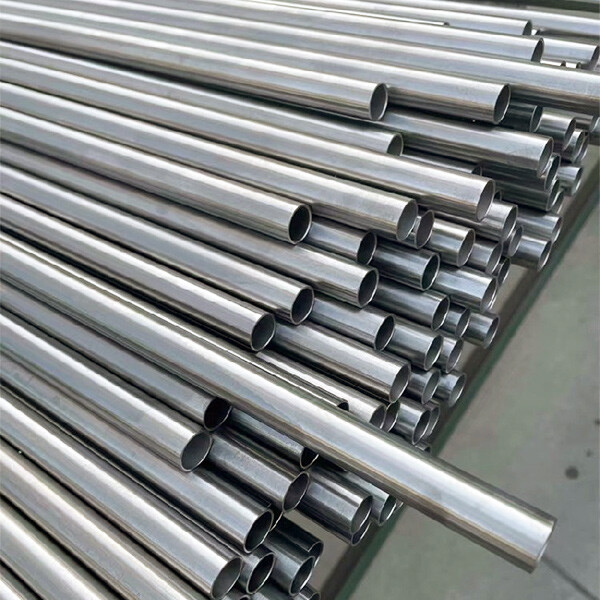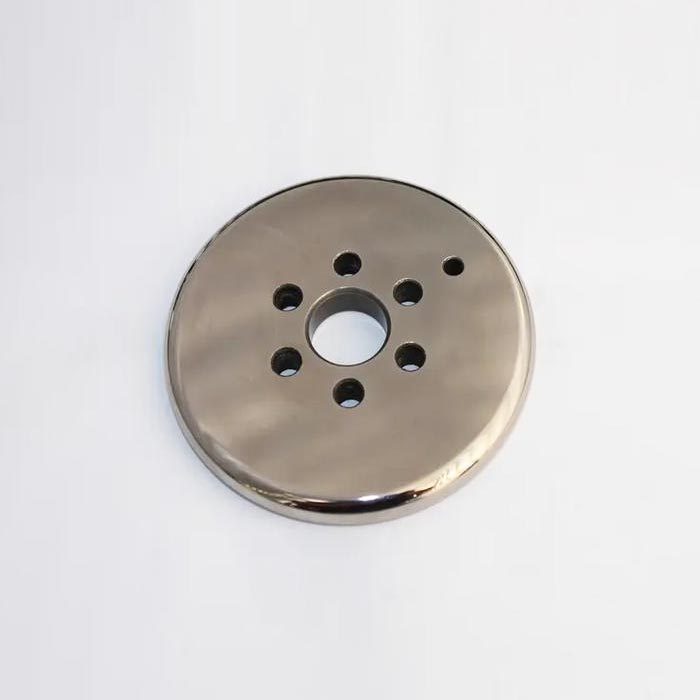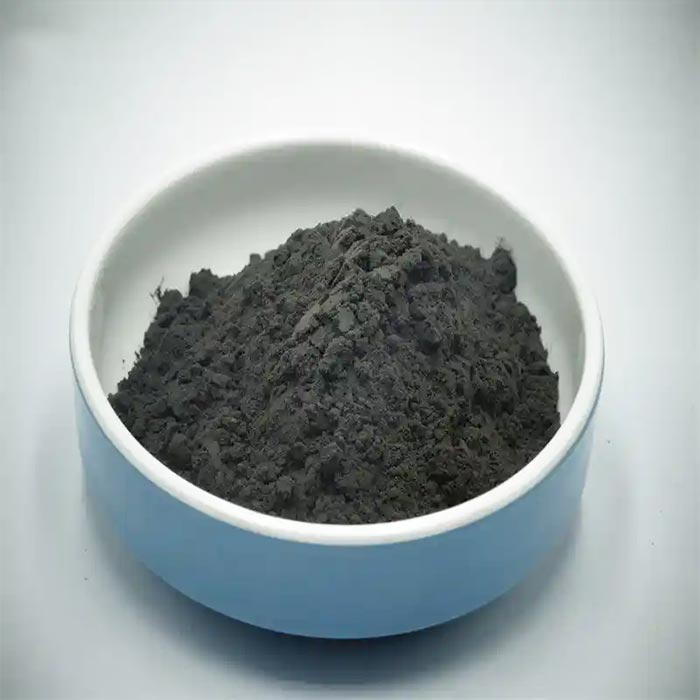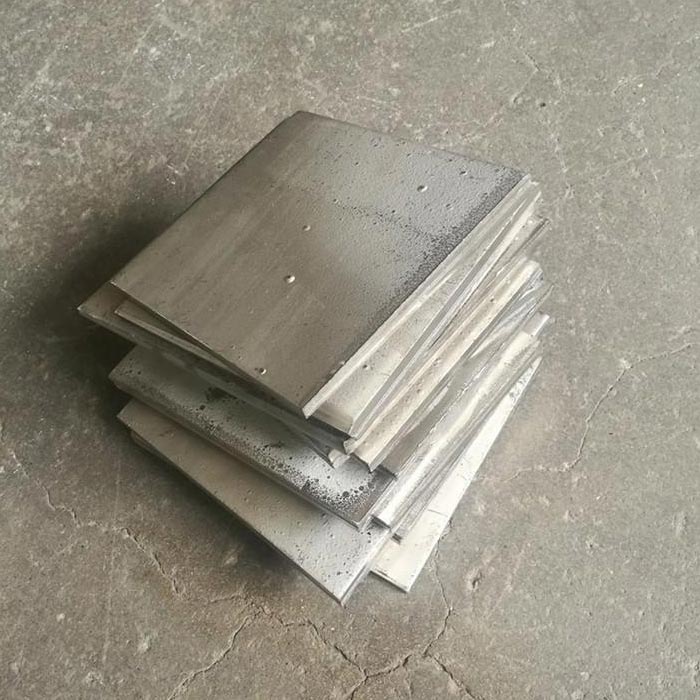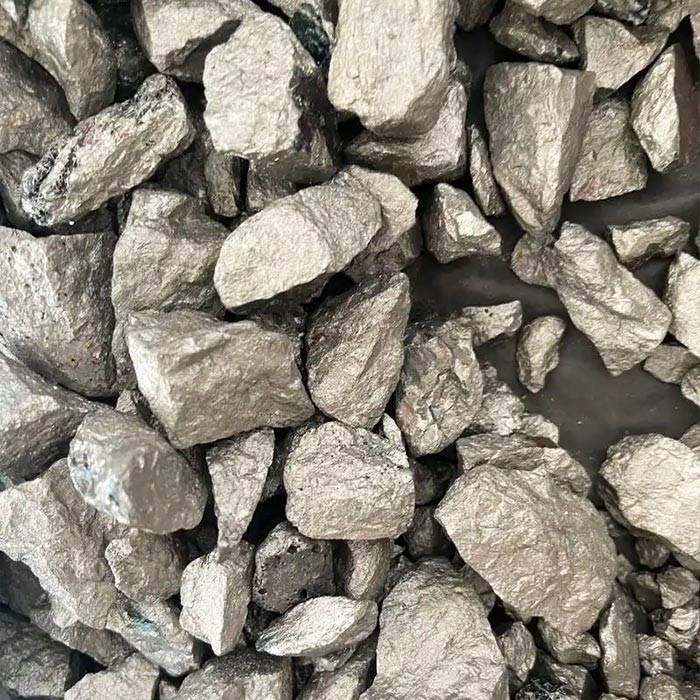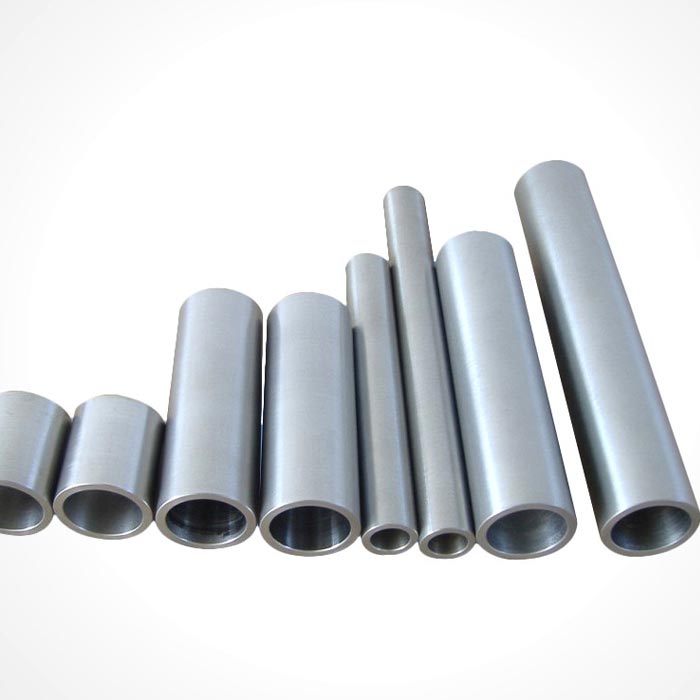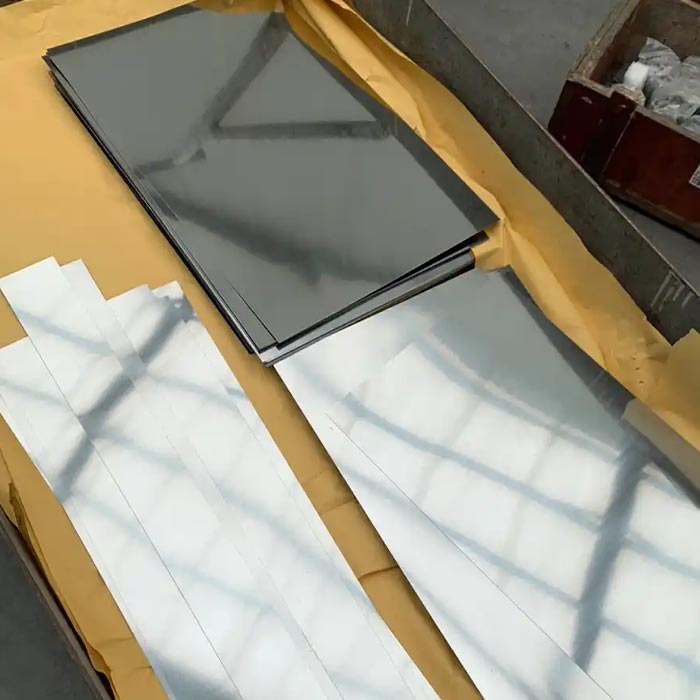
PRODUCTS
Search
Categories List
Titanium tubes are light in weight, high in strength and have excellent mechanical properties. They are widely used in heat exchange equipment such as shell-and-tube heat exchangers, coil heat exchangers, serpentine heat exchangers, condensers, evaporators and transmission pipelines. Many nuclear power industries use titanium tubes as standard tubes for their units.
Common heat treatment methods for titanium tubes include annealing, solid solution and aging treatment. Annealing is to reduce internal stress, enhance plasticity and organizational stability, and obtain better comprehensive performance. Usually, the annealing temperature of α alloy and (α+β) alloy is selected at 120~200℃ below the (α+β)─→β phase transformation point; solid solution and aging treatment are to quickly cool from the high temperature zone to obtain the martensitic α′ phase and the metastable β phase, and then keep warm in the medium temperature zone to decompose these metastable phases, obtain fine dispersed phase particles such as α phase or compounds, and complete the purpose of strengthening the alloy.
PRODUCT USES
Titanium alloys have high strength and low density, good mechanical properties, and good toughness and corrosion resistance. In addition, titanium alloys have poor process performance and are difficult to cut. During hot processing, they are very easy to absorb impurities such as hydrogen, oxygen, nitrogen, and carbon. They also have poor wear resistance and complex production processes. The industrial production of titanium began in 1948. The needs of the development of the aviation industry have led to the development of the titanium industry at an average annual growth rate of about 8%. At present, the annual output of titanium alloy processing materials in the world has reached more than 40,000 tons, and there are nearly 30 titanium alloy grades. The most widely used titanium alloys are Ti-6Al-4V (TC4), Ti-5Al-2.5Sn (TA7) and industrial pure titanium (TA1, TA2 and TA3). Titanium alloys are mainly used to make aircraft engine compressor parts, followed by rockets, missiles and high-speed aircraft structural parts. In the mid-1960s, titanium and its alloys were used in general industry to make electrodes for the electrolysis industry, condensers for power stations, heaters for petroleum refining and seawater desalination, and environmental pollution control devices. Titanium and its alloys have become a corrosion-resistant structural material. In addition, it is also used to produce hydrogen storage materials and shape memory alloys.
Q1: Where is your company located?
A: Jinan, Shandong
Q2: How is the quality control of your company?
A: We attach great importance to quality control from the beginning to the end, and our QC department will strictly check all goods before shipment. Third-party inspection is welcome.
Q3: Can customer brand be made?
A: Yes, OEM is welcome if the quantity exceeds the MOQ.
Q4: Where is your loading port?
A: Qingdao Port.
Q5: Do you provide free samples?
A: Yes, free stock samples will be provided, but the freight will be borne by the customer. Please contact us to check the freight according to the customer's address.
